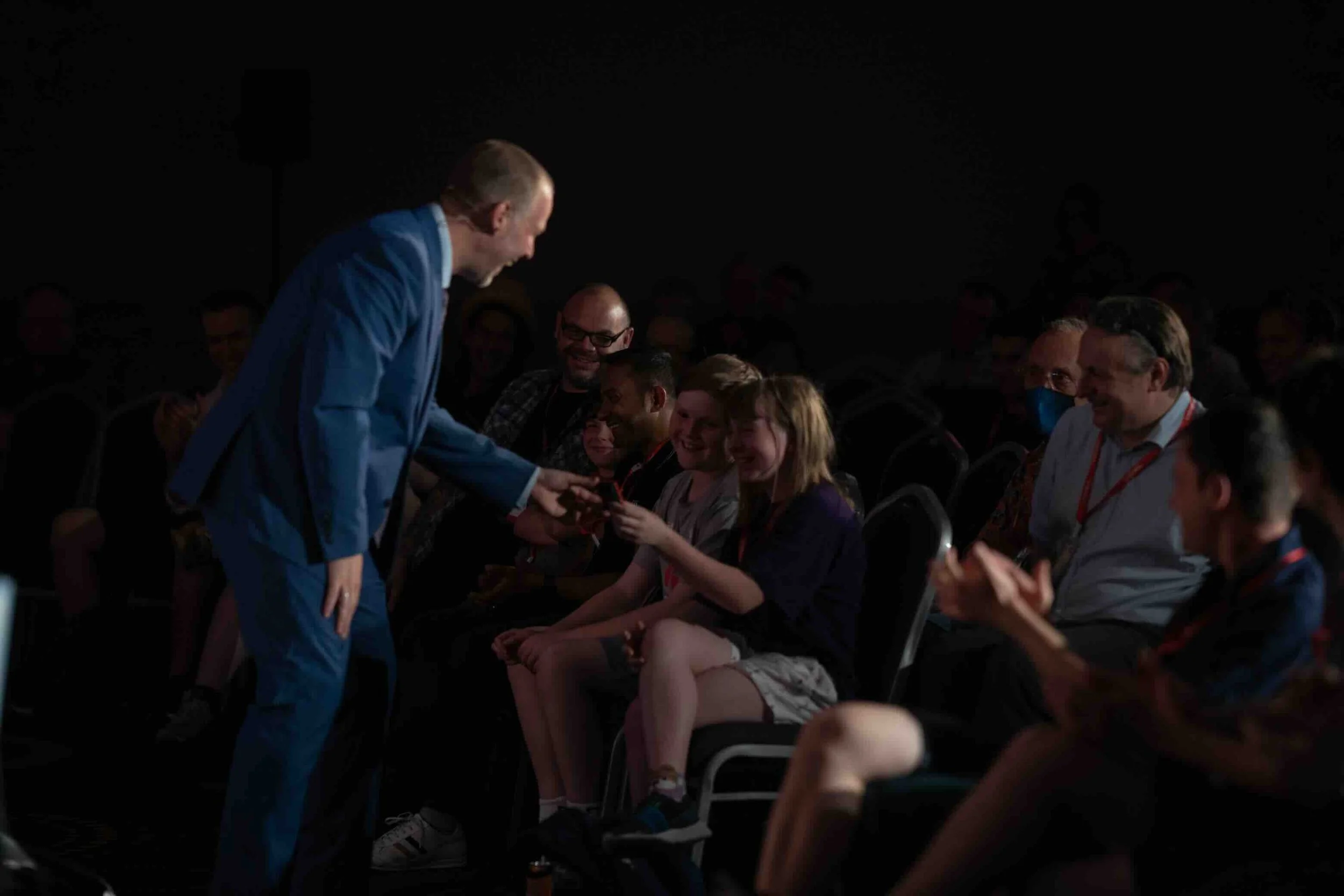When Entertainment Becomes the Gift Everyone Remembers
Last December, a Boston tech CEO pulled me aside after I'd performed at his company's holiday party. "We gave out $200 gift cards last year," he said. "Nobody mentioned them after January. But I guarantee they'll still be talking about tonight's show at next year's party." He was right—I ran into three of his employees at a Portsmouth restaurant six months later, and they immediately launched into their favorite moments from that performance.
After 15 years of performing at corporate events across New England, I've watched entertainment transform from a line item on an event budget to the gift that creates lasting connections. And here's what most Boston companies don't realize: when you choose the right entertainment, you're not buying a service—you're creating a shared experience that becomes part of your company's story.
The Problem with Traditional Corporate Gifts (And Why Maine Companies Are Catching On)
Think about the last corporate gift you received. Can you even remember what it was? The branded water bottle gathering dust in your cabinet? The gift card you probably spent on groceries?
Here's what I've observed performing at hundreds of New Hampshire corporate events: companies spend thousands on physical gifts that disappear into desk drawers, while the twenty-minute comedy set from 2019's holiday party still gets quoted in Slack channels. The ROI isn't even close.
Traditional corporate gifts serve a purpose—they show appreciation. But entertainment does something more powerful: it creates a moment where everyone shares the same experience, laughs at the same time, and walks away with stories instead of stuff.
What Makes Entertainment Different
Shared experiences bond teams better than individual gifts ever could
Stories travel—employees tell friends and family about amazing entertainment
Memories appreciate in value while physical gifts depreciate
Everyone participates regardless of their role or department
Why Interactive Entertainment Hits Different at Connecticut Corporate Events
I learned this lesson the hard way at a Hartford insurance company's summer party in 2018. They'd originally hired me as background entertainment while employees picked up their service awards—essentially expensive wallpaper with a deck of cards.
Halfway through, I convinced them to let me do 20 minutes of interactive magic with the crowd. The energy shift was immediate. Suddenly, the VP of Operations was on stage helping with a trick, the normally reserved accounting team was cheering louder than anyone, and people actually put their phones down.
Six months later, they called to book me again. Not for awards this time—specifically for the interactive show. "People are still talking about Brian from accounting catching that card in his pocket," the event planner told me. "We've never had that happen with the crystal paperweights."
The Psychology Behind Why This Works (Backed by Real Boston Events)
There's actual science here, though I promise not to get too nerdy about it. Shared experiences trigger what psychologists call "collective effervescence"—basically, when groups experience something together, it creates stronger bonds than individual experiences.
I see this every time I perform at Boston's Seaport District venues. The magic isn't just what happens on stage—it's watching your usually serious colleague completely lose it when a signed card appears in an impossible location. It's the inside jokes that develop. It's the automatic conversation starter for every meeting for the next three months.
The Lasting Impact Metrics
From tracking my repeat bookings across New England venues, here's what happens after entertainment-focused events:
73% of my Maine corporate clients report improved team dynamics post-event
New Hampshire companies see average event satisfaction scores jump 40% when switching from gifts-only to entertainment-plus-gifts
Boston firms that include interactive entertainment report 3x more employee mentions in post-event surveys
How to Position Entertainment as an Investment, Not an Expense
When I work with Connecticut event planners, the budget conversation always comes up. Here's how I reframe it: divide your entertainment budget by the number of stories it creates. A $3,000 show for 100 employees that generates 300 stories (conservative estimate—most attendees share multiple moments) comes to $10 per lasting memory.
Compare that to $100 gift cards that get forgotten by February. Which one builds company culture?
The secret: Don't eliminate gifts entirely. Pair meaningful entertainment with modest gifts. The combination gives employees something tangible to remember the intangible experience. One Portsmouth biotech company nailed this—they gave everyone a custom deck of cards after my performance. Simple, relevant, and every time someone sees those cards, they remember that incredible night.
Making Your Next New England Corporate Event Unforgettable
Whether you're planning a holiday party in Boston, a team-building event in Manchester, or a client appreciation dinner in Portland, consider this: your attendees won't remember what you gave them, but they'll never forget how you made them feel.
The best corporate events I've performed at—from Hartford insurance companies to Boston tech startups—understand that entertainment isn't the intermission between dinner and dessert. It's the main event that transforms a mandatory work function into the highlight of the quarter.
Planning an event in Boston, New Hampshire, Maine, or Connecticut? Let's chat about making it the one they'll still be talking about next year. I'd love to help you create an experience that becomes part of your company's culture—not just another Thursday night with free food.
